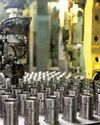The farmer will be on centre stage in 2019, as promises shower on the largest vote bank, but what is he likely to get in the end?

THE MODI REGIME’S FOCUS from the start had been to reshape the entire farming system in India through an income revolution. The government’s rather larger - than life - vision is to double farmers’ income by 2022. Yet, the years 2017 and 2018 will probably be best remembered for attempts to “use farmers as a tool” to serve political ends. In 2019, a year that will prove decisive for the electorate, what then should the farmer expect – beyond promises that is?
One reason why the farmer becomes a hapless “tool” in the hands of politicians is that most of agrarian India is still rain-fed. As economist and former member of the Planning Commission, Abhijit Sen points out, the Indian farmer still looks to the Rain Gods for a good crop. Worldwide, that was the plight of the farmer in the 1860s when poet Owen Lovejoy penned his tribute to the tiller of the soil. “First of all our gratitude is due, To him whose goodness like the falling dew; descends on all alike, and crowns the year, with the rich fruits you exhibit here,” wrote Owen Lovejoy.
A India Brand Equity Foundation (IBEF) report on the Indian agro-economy and its outlook says the record farm output of recent years have encouraged the government to aim for higher production in 2018-19 too. During the 2017-18 crop year, foodgrain production is estimated to have been a record 284.83 million tonnes. Milk production was estimated at 165.4 million tonnes, while meat production was 7.4 million tonnes. As of September 2018, the total area sown with Kharif crops in India extended to 105.78 million hectares.
‘The rich fruits’
This story is from the {{IssueName}} edition of {{MagazineName}}.
Start your 7-day Magzter GOLD free trial to access thousands of curated premium stories, and 9,000+ magazines and newspapers.
Already a subscriber ? Sign In
This story is from the {{IssueName}} edition of {{MagazineName}}.
Start your 7-day Magzter GOLD free trial to access thousands of curated premium stories, and 9,000+ magazines and newspapers.
Already a subscriber? Sign In

MEMORIES & IMPRESSIONS
Ratan Tata was an exceptional human being. He was a visionary leader, esteemed industrialist, and a humanitarian, who left an indelible mark on India and the world.

The Robotaxi Market
The robotaxi market is shaping up to be a high-stakes battleground as tech giants and automakers race to transform urban mobility.

And the Nobel Prize Goes to AI
The recent Nobel Prize T awards to AI pioneers affiliated with Google have sparked a broader conversation about Big Tech's influence on research and the limitations of traditional prize categories.

Ola Electrified
Once considered a trailblazer in India’s electric vehicle (EV) ecosystem, Bhavish Aggarwal’s Ola Electric now faces a major accountability crisis.

Sharp Slide in Industrial Output on Eve of Deepavali
India’s index of industrial production (IIP) saw a sharp reversal in August, contracting by 0.1 per cent, in stark contrast to the 4.7 per cent growth in July, mostly because of significant contractions in mining and electricity generation.

Heralding the Solar Era with Sustainable Electrification
RAJEEV KASHYAP on the economics of solar power, the hurdles in scaling it, and much more

A WELL-GREASED MACHINE
The OmniBook X14 laptop runs on first-generation Snapdragon X Elite, which bets big on Al-enabled productivity and battery life, but falls short when it comes to overall experience, says Deep Majumdar

DO NOT LETA HEALTH CRISIS RUIN YOUR FINANCIAL HEALTH
For a family of four living in a metro, it is recommended to opt for a family floater health insurance plan with a sum insured of at least Rs 15-20 lakh

Disruption Ahead: Beyond Organisation Charts and Structures
ALBERT EINSTEIN FAMOUSLY said, “We cannot solve our problems with the same thinking we used when we created them.

Dr. Rahul Shivajirao Kadam: A Visionary Leader Blending Sustainability, Innovation, And Social Empowerment
We are on the stage of global warming, and these technologies not only help prevent further damage but also leave behind a better environment for future generations.